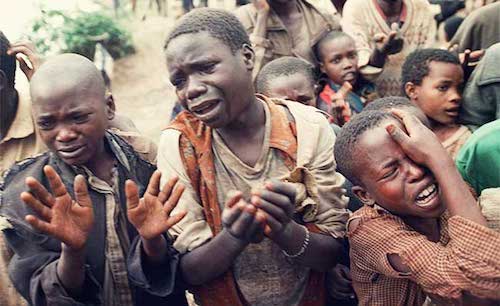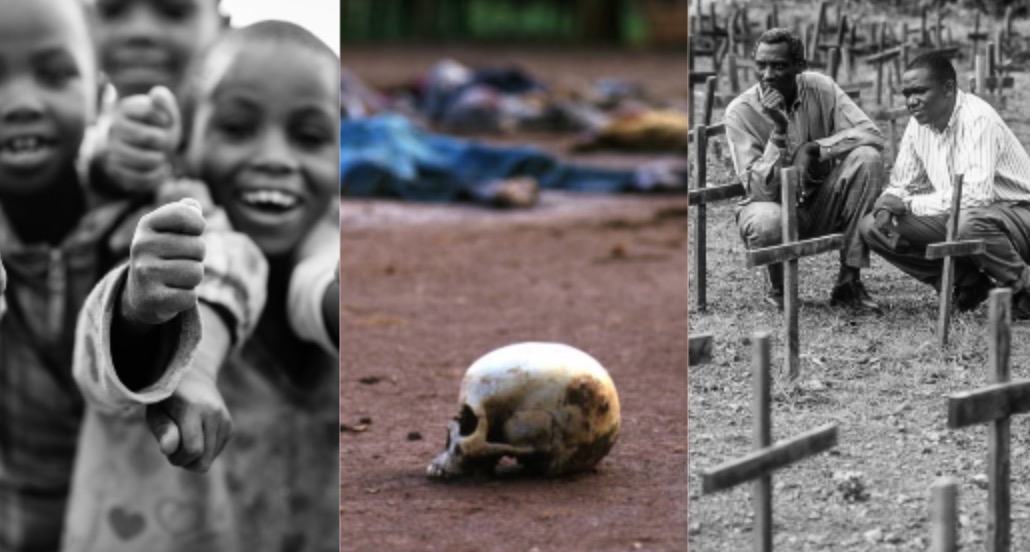Burundi, 1993
The Hutus won the presidential office with banker Melchior Ndadaye, forming the first government since independence from Belgium in 1962 with elections that had been agreed to by the ruling Tutsis, but Ndadaye was assassinated shortly thereafter. The killing of the president threw the country back into turmoil, claiming about 25,000 Tutsi civilians in revenge killings. This sparked killings of Hutu, resulting in a total death toll of about 50,000 over the next several months. The mass killings of the Tutsi wouldn’t be called a genocide by the United Nations until a 2002 inquiry.
Rwanda, 1994
In April 1994 Burundian president Cyprien Ntaryamira, a Hutu, and Rwandan president Juvenal Habyarimana, also a Hutu, were killed when their plane was shot down. By this time, tens of thousands of Hutus had fled the Burundi violence into Rwanda. Blame for the assassination has been pointed at both Tutsi and Hutu extremists; current Rwandan President Paul Kagame, who at the time led a Tutsi rebel group, has said that the Hutu extremists conducted the rocket attack to set in motion their long-laid-out plans to wipe out the Tutsis. These genocidal plans were hatched not just at cabinet meetings, but spread in media incitement, and capped a long period of ethnic unrest in Rwanda.

Between April and July, some 800,000 Tutsis and moderate Hutus were killed, with a militia group called the Interahamwe taking lead in the slaughter. Sometimes Hutus were forced to kill their Tutsi neighbors; other participants in the genocide were given monetary incentives. The United Nations let the killings go on unabated after 10 Belgian peacekeepers were killed in the early days of the genocide.
Democratic Republic of Congo, Post-Rwandan Genocide to the Present
Many Hutu militants who participated in the Rwandan genocide fled to the Congo in 1994, setting up encampments in the mountainous areas akin to fiefdoms. In addition, several groups of Hutu fighting the Tutsi-dominated government of Burundi settled in the eastern part of the country. Rwanda’s Tutsi government has twice invaded with the intention of wiping out the Hutu militants. The Hutu also battle a Tutsi rebel leader, General Laurent Nkunda, and his forces. Up to five million deaths have been caused by the years of fighting in the Congo. The Interahamwe now call themselves the Democratic Forces for the Liberation of Rwanda and use the country as a staging base to overthrow Kagame in Rwanda. One of the group’s commanders told the Daily Telegraph in 2008, We are fighting every day because we are Hutu and they are Tutsis. We cannot mix, we are always in conflict. We will stay enemies forever.”
By Bridget Johnson, ThoughtCo






































Discussion about this post